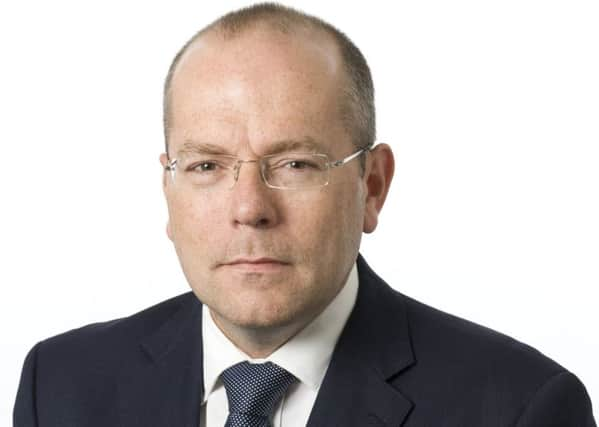Regulator aims for simplicity in fintech dealings


The regulator sees Leeds and Manchester and the corridor between Glasgow and Edinburgh as key clusters outside of London that have the potential to drive innovation in fintech.
Christopher Woolard, executive director of strategy and competition at the FCA, told The Yorkshire Post: “We have a duty as a regulator to promote competition. One of the things we want to do with that is get as many firms into the market.
Advertisement
Hide AdAdvertisement
Hide Ad“That’s whether they are working with big established players or whether they are working directly in competition with them. We want to see that competition in the interests of consumers.”
The FCA plans on having closer contact with the region’s small fintech companies so that they don’t “feel that a conversation with the regulator is something that you have to come solely to London to do”.
Instead the regulator will “go where the firms are”, Mr Woolard said, adding that it will do what works to encourage and foster innovation for the future.
Mr Woolard said the regulator believes that Leeds could be key to driving innovation in the fintech market.
Advertisement
Hide AdAdvertisement
Hide AdThe city has an established financial services market, a vibrant cluster of technology companies and is supported by the universities.
He added that the UK was already well placed when it comes to fintech but that the country must not get overly complacent as other nations are also developing their own capabilities.
Countries such as the US, Singapore and China are all developing their fintech sectors but in different ways.
Mr Woolard said: “If we look at what’s happening in those countries, it’s about how do you make sure you’ve got a supply of innovators coming forward into the market and who are driving competition?”
Advertisement
Hide AdAdvertisement
Hide AdHe added: “We have set out to try and make it as easy as possible for these innovative firms to deal with the regulator.
“Historically I think regulation has been seen by some of those firms as something that will stifle their business rather than being an essential part of doing business in the financial services market.”
The FCA set up Project Innovate in 2014. “A means of having much easier conversations with the regulator, much earlier in the lifecycle of the firm,” says Mr Woolard.
The regulator also has the Regulatory Sandbox, which allows innovative fintech firms to test their offering in a live environment. Mr Woolard said the Regulatory Sandbox deals with “the most cutting-edge ideas where we aren’t sure how they will behave when real consumers are using those services”.
Advertisement
Hide AdAdvertisement
Hide Ad“We have essentially a fixed period of time where firms can have a temporary authorisation and work with us to experiment on some of those ideas,” he added.
The executive director of strategy and competition at the FCA was in Yorkshire to deliver a speech at the Leeds Digital Festival last week.
“What we want to do is get our teams on the road and come out and speak much earlier to firms that are in the Leeds and Manchester area in particular and do that on a regular basis,” he said.
Universities have a big role to play when it comes to driving innovation in fintech. Many universities have incubators where small innovative firms are spun-out from. The FCA says that it also does work with universities around research on future developments in the market.
Advertisement
Hide AdAdvertisement
Hide Ad“We shouldn’t forget the vital role that universities play in providing graduates with the skills that are going to be needed for this market in the future,” Mr Woolard added.
Fintech: Industry where financial services and technology collide
While fintech is considered to be a relatively new industry, Mr Woolard believes that to “some extent” people have been doing it for years.
“Certainly in about the last three or four years we’ve seen a real explosion in the number of companies of all sorts of different shapes and sizes, who are thinking about that space where traditional financial services collide with technology,” Mr Woolard added. It’s not easy to neatly sum up the fintech sector but that the “combination of finance plus technology is really the core of it”, he said.
Advertisement
Hide AdAdvertisement
Hide AdFintech provides the chance to create a “virtuous circle”, where consumers benefit from more efficent, cheaper and user-friendly products while trusting technology firms more when using financial services.